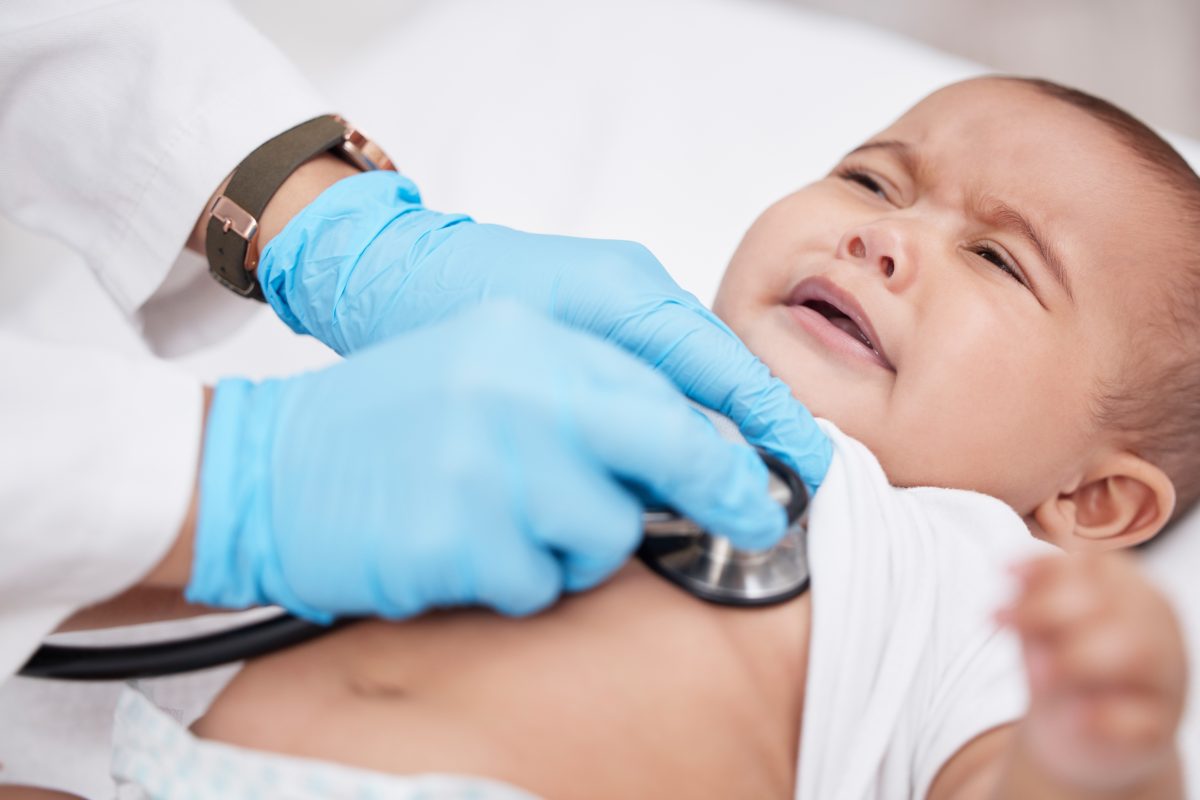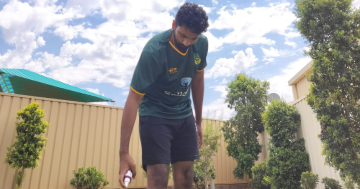
Infants are especially at risk of severe complications from whooping cough. Photo: YuriArcursPeopleimages.
Canberra and southern NSW are not immune from the rapid rise of whooping cough cases being seen across the country, mainly in school-age children and teenagers.
There have been 12,038 cases of whooping cough (or pertussis) notified across the country to 30 June.
There were a total of 2445 notifications in 2023.
Focusing specifically on the southern NSW and ACT regions, there have been 251 cases so far this year in the Illawarra-Shoalhaven Local Health District, 52 in the Murrumbidgee, 50 in southern NSW and 126 in Canberra.
Whooping cough infections are cyclical, so there are expected epidemic peaks.
Other factors behind cases exploding include vaccination coverage, waning immunity and the overall community’s lack of exposure to whooping cough during the COVID-19 pandemic.
A public health clinician alert about whooping cough vaccination, testing and management was distributed to Canberra GPs in early May, while a similar alert was sent out to NSW doctors in March.
An ACT Health spokesperson explained infants aged less than six months were at the greatest risk of severe disease (such as seizures, pneumonia and brain damage), hospitalisation and death due to pertussis.
“The pertussis vaccine is funded under the National Immunisation Program for children, adolescents, and during pregnancy,” they said.
“Pertussis vaccination is also recommended for specific other groups, including carers of infants aged less than six months, early childhood educators, healthcare workers, and older adults if their last dose was more than 10 years ago.”
Whooping cough can sometimes begin like a cold, with a runny nose, tiredness, a mild fever and cough.
People then go on to develop bouts of severe, uncontrollable coughing, which can result in vomiting, and a high-pitched ”whooping” sound may also be heard.
Infants are less likely to have the typical symptoms of whooping cough, but instead may appear to be gagging, gasping for air and unable to feed well, and may become blue around the mouth.
A person can be infectious for up to 21 days from when their cough starts or until they’ve completed five days of a course of antibiotics.
It’s not the only infectious respiratory disease that’s circulating at high rates in the community.
Cases of RSV and influenza A have also been on the rise.
The community’s been advised to make sure their vaccination status for both whooping cough and flu are up to date, and to speak with their pharmacist or GP about the best protection options if concerned.









